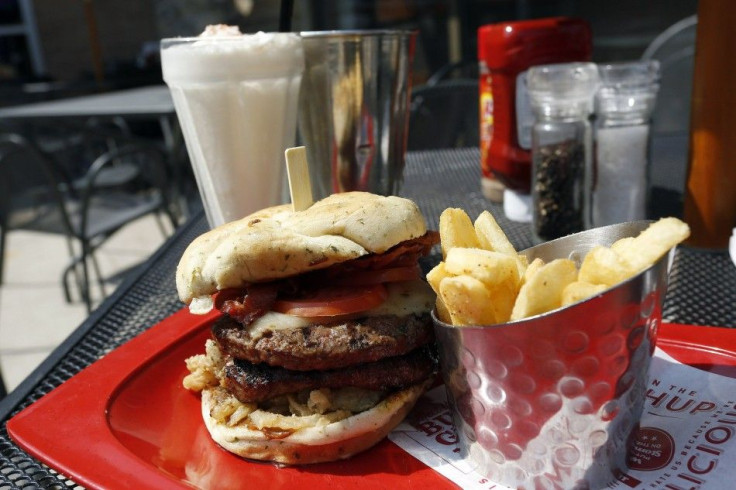Burger King Mulls Buying Tim Hortons, Could Relocate to Canada, Shares of Both Up

U.S. fast-food global chain Burger King is in talks of buying Canadian coffee and doughnut chain Tim Hortons that could see the former switch headquarters in the North American country. Shares of both companies immediately jumped on the news on Monday.
Shares of Tim Hortons and Burger King jumped nearly 20 per cent at $75.23 and over 17 per cent to $31.83, respectively, on the New York Stock Exchange.
Burger King is said to be pushing hard for the merger in a bid to deviate from the maddening corporate tax rates slapped by the US. The Canadian corporate tax rates are much more favourable.
A report by Forbes said Ontario, Canada's corporate tax rate, where the headquarters of the new merged entity could possibly be located, is only 26.5 per cent, much lower compared to the American corporate tax rate of 35 per cent.
If the deal becomes successful and Burger King goes to Canada, it could translate to a tax savings by as much as 13 per cent, Reuters quoted David Baskin, President of Baskin Financial Services. Baskin has about 180,000 shares in Tim Hortons.
"The deal would be structured as a tax inversion, which could see a more favourable treatment for Burger King's foreign profits and create the third-largest global quick-service restaurant player," Patricia Baker, a Scotiabank analyst, said in a note to clients.
Canada's largest coffee-shop chain, Tim Horton's market capitalization is placed at about $8.4 billion, while Burger King's market capitalization is at about $9.6 billion.
The proposed merger between the two companies would create a new entity worth about $18 billion.
But followers and consumers of the 60-year-old U.S. global hamburger chain aren't liking the idea, due to emotional reasons.
"For them to take their headquarters and move it across the border is a negative for me," Shawn Simpson told AP. "It's an American brand."
While Burger King customers could initially boycott the brand because of its moving out decision, some analysts believed this will only be a fleeting scenario since basically the company will maintain the same number of restaurants and whatever offerings it gives on the menu.
"It's going to irritate people, but basically it's a paper move," Jonathan Maze, editor of Restaurant Finance Monitor, told AP.
A recent KPMG Focus on Tax 2014 Report has in fact ranked Canada as the leader country with the most business-friendly tax structure among developed countries. When compared to developed countries, Canada's taxes were at just 53.6 per cent versus the U.K. at 66.6 per cent and the Netherlands at 74.5 per cent.
This early, investors of Tim Hortons are already counting their potential gains from the proposed merger.
Baskin said he expects at least C$85 a share equivalent, about 2.75 shares of Burger King for every Tim Hortons share.
"I think that would be a fair premium. Much less than that and they're going to start getting pushback from Canadian institutions."
Burger King isn't the first U.S. company to undergo a tax inversion deal with a foreign brand. Before it there were Valeant Pharmaceuticals International Inc. which combined with Canada's Biovail Corp. in 2010, and a string of other tax-inversion deals.





















